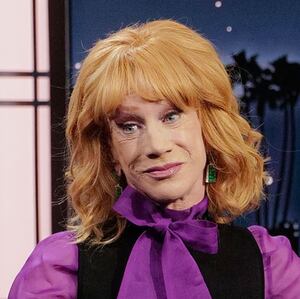Britney Spears’ upcoming memoir, The Woman in Me, might be one of the most anticipated pop culture books of the year, and now, fans have received their first sneak peek. People has obtained a series of exclusive excerpts, which cover the singer’s life from her Mickey Mouse Club days, her first kiss with Justin Timberlake, and, of course, the conservatorship that ruled her life until November 2021.
According to People, Spears, 41, also reveals that while dating Timberlake, she became pregnant and had an abortion because he “didn’t want to be a father.” Spears reportedly writes that the NSYNC singer “definitely wasn’t happy about the pregnancy. He said we weren’t ready to have a baby in our lives, that we were way too young.”
“It was a surprise, but for me, it wasn’t a tragedy. I loved Justin so much. I always expected us to have a family together one day,” Spears adds. “I don’t know if that was the right decision. If it had been left up to me alone, I never would have done it. And yet Justin was so sure that he didn’t want to be a father.”
The two dated from 1999 to 2002, during their early days of fame. A representative for Timberlake did not immediately respond to The Daily Beast’s request for comment.
Spears’ book also reportedly discusses how her restrictive conservatorship affected her self-image.
“I’d been eyeballed so much growing up,” Spears writes, via People. “I’d been looked up and down, had people telling me what they thought of my body, since I was a teenager. Shaving my head and acting out were my ways of pushing back. But under the conservatorship I was made to understand that those days were now over.”
Under the conservatorship, Spears writes that she suddenly needed to “go to bed early and take whatever medication they told me to take.” Both the media and her father, Jamie Spears, had begun body-shaming her, she adds—comments that isolated her more and more from her creativity.
“As far as my passion for singing and dancing, it was almost a joke at that point,” Spears writes, per People—adding later that the conservatorship spelled “death to my creativity as an artist.”
As a little girl, Spears alleges that her father “drummed” the message in that she was never good enough—a narrative that she says continued throughout the conservatorship.
“I became a robot,” she writes. “But not just a robot—a sort of child-robot. I had been so infantilized that I was losing pieces of what made me feel like myself.”
For 13 years, Spears felt like “a shadow of myself,” she writes. “I think back now on my father and his associates having control over my body and my money for that long and it makes me feel sick.”
In the summer of 2021, months before Los Angeles Superior Court Judge Brenda Penny released Spears from the conservatorship that had ruled her life for 13 years, the pop idol delivered a heart-rending testimony about her experience. She said her conservators had denied her privacy, even while she was changing clothes. She claimed that she’d been forced to switch medications against her will as “punishment” for canceling her Las Vegas residency show in 2019, and she said her conservators wouldn’t allow a doctor to remove her IUD, even though she wanted to have a baby.
As advocates pointed out at the time, Spears’ conservators’ alleged refusal to allow her to remove her IUD compromised her reproductive freedom—a violation that disabled people under similar guardianship arrangements can also face.
Rebecca Cokley, a disability rights activist, told The 19th at the time that Spears’ experience illustrates both sexism and ableism. “They’re using her mental illness as a means to control her right to her body,” Cokley said. “The choices she makes, the labor that she does or does not provide—in this case the labor that she’s being forced to provide—and she’s not able to make a single decision, on a daily basis, about her life without having it approved.”
In November 2021, the Court ended Spears’ conservatorship. News of her book deal broke this summer, and not long after, so did word of her divorce from Sam Asghari—her partner of six years, whom she married last year. Although the #FreeBritney movement sparked a wave of documentaries uncovering the injustices she’d faced during the conservatorship, some of those projects were more exploitative than others. This spring, less than two years after Spears’ release, TMZ released a “documentary” implying that, perhaps, her newfound freedom had gone too far—a narrative that some armchair spectators at home and even comedians like Kathy Griffin have also embraced.
But is this not the same kind of infantilization that landed Spears in the conservatorship in the first place? In the excerpt obtained by People, Spears makes sure to point out the greatest irony underpinning the arrangement: The narrative went that she was “so incapacitated that I had to be controlled by my family,” in spite of everything she was accomplishing at the same time as an artist.
“This is what’s hard to explain,” Spears wrote. “How quickly I could vacillate between being a little girl and being a teenager and being a woman, because of the way they had robbed me of my freedom.”
As Spears puts it, “There was no way to behave like an adult, since they wouldn’t treat me like an adult, so I would regress and act like a little girl; but then my adult self would step back in—only my world didn’t allow me to be an adult.”
Ever since her release from the conservatorship, Spears added, “I’ve had to construct a whole different identity. I’ve had to say, Wait a second, this is who I was—someone passive and pleasing. A girl. And this is who I am now—someone strong and confident. A woman.”
The Woman in Me is set to hit shelves on Oct. 24.








